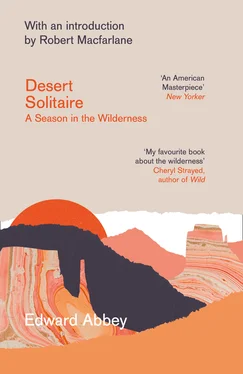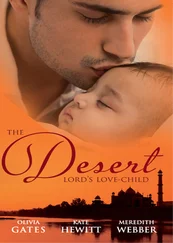The political aims of constructivism were at heart admirable: by demonstrating the contingency of all discourse, entrenched positions and assumptions (concerning ‘gender’ or ‘race’, for instance) might be deconstructed and then rebuilt in more inclusive or progressive ways. And the constructivist critique of wilderness thought was, in several respects, necessary and valuable. The work of scholars such as William Cronon and Max Oelschlaeger was vital in laying bare the histories of exclusion that the ideas of ‘wilderness’, especially ‘pristine wilderness’, have enabled or motivated through history, from the ethnic cleansing of the indigenous populations from areas later designated as National Parks and public lands during and after the ‘Indian Wars’, through to the questionable ‘green imperialism’ of some later twentieth-century large-scale conservation projects. Yes, hegemony was constructivism’s target, and it brought about a political revolution, the reverberations of which are still being felt today.
Constructivism can exert its own hegemony, however. By arguing for meaning as invariably ‘made’ by socio-cultural systems, it leaves the more-than-human world stripped of agency and valency. Nature is elided, rendered unable to participate in its own representations. Constructivism sought to give voice to minorities who had been repressed by the structuring of discourse – but in the case of the natural world, constructivism left the ‘other’ of creature, plant and ecosystem silenced. By disallowing what Eileen Crist calls – in her landmark 2004 essay ‘Against the Social Construction of Nature and Wilderness’ – the ‘self-organizing, self-determining nonhuman habitats and habits, operational for millennia before human presence’, it endorsed and advanced a hard anthropocentrism. Because – according to constructivism – there is no longer any ‘nature’ and no ‘wild’, because we have all accepted the culturally constructed and always already artefactual status of such designations, there is nothing to stop us technologically remaking our landscapes without reference to such sentimental antiquarianisms as ‘biodiversity’, ‘ecological baselines’ or ‘uniqueness’. Onwards, therefore, into a fully automated future! Long live shifting baseline syndrome! Endless growth on a finite planet! For some time now, those who speak up for either making or saving significant space for more-than-human nature – or what in the American Wilderness Act of 1964 is called ‘the earth and its community of life’ – have found themselves quickly denounced as ‘romantic’ or ‘nostalgic’. But when I hear the word ‘nostalgic’, I reach for my Abbey.
We are at a fascinating moment in the modern history of ‘wilderness thought’. ‘Re-wilding’ movements are gathering pace in Britain and Europe, working with a freshly flexible definition of ‘wilderness’ to create new habitat for both human and the more-than-human inhabitants. Falling birth rates and population flight from the countryside across Europe are leaving opportunities for the return and freer movement of creaturely life, and for the increasing ‘wilderness’ as it is defined by the European Commission: ‘area[s] governed by natural processes … composed of native habitats and species, and large enough for the effective ecological functioning of natural processes … unmodified or only slightly modified and without intrusive or extractive human activity, settlements, infrastructure or visual disturbance.’ I think Abbey would have approved of this definition and what it encouraged: a forward-looking, dynamic understanding of ‘near-wilderness’, with biodiversity and self-determination at its core, and baselines taken into account, but with a respect for nature’s capacities for improvisation and resilience also implicit.
In America, however, the opposite momentum is underway. Trump and Ryan Zinke’s attack on public land designations is part of a broader attack on the rights and needs of the ‘community of life’ beyond the human, opening across multiple fronts. Abbey’s argument for ‘keeping the wild’ based on ‘intrinsic value’, and his declared readiness to fight for the rights of wildland and its creatures, seem more important than ever. He saw Trump coming, and foretold what he called the growing threat to ‘the majority of our national parks and national forests, despite the illusory protection of the Wilderness Preservation Act – unless a great many citizens rear up on their hind legs and make vigorous political gestures.’ Desert Solitaire was one of Abbey’s most powerful ‘political gestures’, and it still hums with relevance today, half a century on from its publication. I end this essay (written in an American wilderness area) by quoting from the final lines of Abbey’s preface (written, of course, in a bar), in which he makes clear that his book is not a dallying with the desert picturesque, a Bierstadt-Baedeker, but a rousing call to action:
This is not a travel guide but an elegy. A memorial. You’re holding a tombstone in your hands. A bloody rock. Don’t drop it on your foot – throw it at something big and glassy. What do you have to lose?
Robert Macfarlane,
Dolly Sods Wilderness,
Monongahela National Forest,
West Virginia, February 2018.
About ten years ago I took a job as a seasonal park ranger in a place called Arches National Monument near the little town of Moab in southeast Utah. Why I went there no longer matters; what I found there is the subject of this book.
My job began on the first of April and ended on the last day of September. I liked the work and the canyon country and returned the following year for a second season. I would have returned the third year too and each year thereafter but unfortunately for me the Arches, a primitive place when I first went there, was developed and improved so well that I had to leave. But after a number of years I returned anyway, traveling full circle, and stayed for a third season. In this way I was better able to appreciate the changes which had been made during my absence.
Those were all good times, especially the first two seasons when the tourist business was poor and the time passed extremely slowly, as time should pass, with the days lingering and long, spacious and free as the summers of childhood. There was time enough for once to do nothing, or next to nothing, and most of the substance of this book is drawn, sometimes direct and unchanged, from the pages of the journals I kept and filled through the undivided, seamless days of those marvelous summers. The remainder of the book consists of digressions and excursions into ideas and places that border in varied ways upon that central season in the canyonlands.
This is not primarily a book about the desert. In recording my impressions of the natural scene I have striven above all for accuracy, since I believe that there is a kind of poetry, even a kind of truth, in simple fact. But the desert is a vast world, an oceanic world, as deep in its way and complex and various as the sea. Language makes a mighty loose net with which to go fishing for simple facts, when facts are infinite. If a man knew enough he could write a whole book about the juniper tree. Not juniper trees in general but that one particular juniper tree which grows from a ledge of naked sandstone near the old entrance to Arches National Monument. What I have tried to do then is something a bit different. Since you cannot get the desert into a book any more than a fisherman can haul up the sea with his nets, I have tried to create a world of words in which the desert figures more as medium than as material. Not imitation but evocation has been the goal.
Читать дальше












